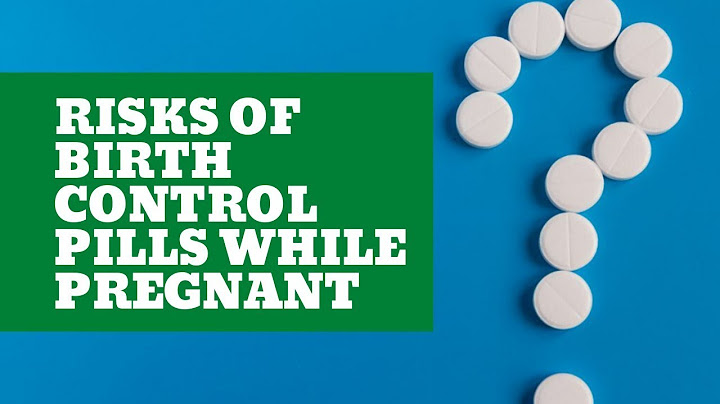A chemical pregnancy is a very early miscarriage. It usually happens before the pregnancy reaches five weeks. Many may not even realize they have had an early miscarriage if it happens soon after a missed period. Doctors often diagnose chemical pregnancy when you have had a positive pregnancy test and you
start menstruating after. They may also diagnose it if there's a positive pregnancy test but the fetus can't be seen on an ultrasound. Symptoms of a chemical pregnancy. Since it is an early miscarriage, many people don't realize they have had a chemical pregnancy. They may only realize it if
they have already had a positive pregnancy test and then get their period. Other signs of a chemical pregnancy include: Causes of a chemical pregnancy. There are many
potential causes of an early miscarriage including: It's important to note that there's little that you can do to prevent an early miscarriage, and it's not the fault of either partner. Additionally, it usually is not a reflection of you or your partner's ability to get pregnant. However, if you believe you have had a
chemical pregnancy, it's best to consult a doctor for advice. Treatments for a chemical pregnancy. Most chemical pregnancies do not require treatment. The miscarriage happens early enough in the pregnancy that it may just seem like a normal or slightly heavy period. If you do have an early miscarriage, you can try to get pregnant again right away if you want. Those who have had multiple chemical pregnancies or miscarriages should consult a fertility specialist to
figure out what's going on. Coping with an early miscarriage. Any miscarriage, including early ones, can be emotional, and people deal with them in different ways. It's normal to feel a sense of grief and loss. Many people blame themselves for the miscarriage. Additionally, there may be hormonal shifts after a chemical pregnancy that make you more emotional. Here are some tips for coping with a miscarriage: Risk factors for a chemical pregnancy. While there's nothing you can do to prevent an early miscarriage, there are some risk factors that make you more likely to have one including: How to prevent a chemical pregnancy. There's not much
you can do to prevent a chemical pregnancy. Take prenatal vitamins before you even get pregnant to promote healthy fetal development if you plan to get pregnant. Some experts recommend that anyone who may become pregnant, even unintentionally, take prenatal vitamins just in case. Chemical pregnancies are very normal. Between 10-20% of all pregnancies end in some type of miscarriage. Most people
who have an early miscarriage go on to have a healthy pregnancy later on. Differences Between a Chemical Pregnancy and a Clinical PregnancyA chemical pregnancy can only be detected through a pregnancy test, which shows elevated hormone levels. A pregnancy becomes clinical when a doctor can verify the pregnancy through an ultrasound or fetal heartbeat. A chemical pregnancy has no signs that can be felt or heard. Doctors can usually detect signs of a clinical pregnancy at five to six weeks through an ultrasound, or at six to seven weeks by verifying a fetal heartbeat. However, hormonal pregnancy tests can detect a chemical pregnancy as early as two weeks after conception. From the pregnancy and parenting brand chosen by more than 400 million expecting parents, BabyCenter’s pregnancy app and baby tracker guides you through pregnancy and parenting with daily pregnancy updates and week-by-week baby development information. Enter your baby's due date (or find it with our Pregnancy Due Date Calculator) to customize our pregnancy tracker for you and get perfectly timed updates. State-of-the-art photos and 3-D videos show your baby’s development throughout your pregnancy. Plus, get answers to all of your pregnancy questions with thousands of expert, medically reviewed articles. BabyCenter’s free pregnancy app supports you after your baby’s arrival with daily parenting updates, tools like the Baby Growth Tracker, and comprehensive baby sleep and feeding guides. All health information is written by experts and reviewed and approved by the BabyCenter Medical Advisory Board. These doctors and other professionals ensure that our pregnancy and parenting information is complete and accurate. If you’re pregnant: If you’re a new parent: Not
pregnant yet? BabyCenter Community: A supportive place to connect with parents and parents-to-be. An Award-Winning
Experience Do not sell my info: https://www.babycenter.com/0_notice-to-california-consumers_40006872.bc We value you as a part of the BabyCenter community and would love to hear from you. Please tell us what’s on your
mind: Let’s connect! Is it normal not to see anything on a 5 week ultrasound?This is because it's too early to see the baby's limbs and organs before this point. In fact, at 5 weeks, you'll likely only see the yolk sac and the gestational sac — and many not even that. What you don't see may unnecessarily worry you, but it's perfectly normal.
Is it normal to not see an embryo at 5 weeks?At 5 weeks into pregnancy things are so small there is very little to see on ultrasound. Even at 6 weeks it can be difficult to see an embryo with some people.
Can you be pregnant and nothing show on ultrasound?A pregnancy that doesn't show on an ultrasound scan is called a 'pregnancy of unknown location'. The most common reasons for a pregnancy not appearing on the ultrasound scan are: it is too soon to see the baby on the scan. you have had a miscarriage.
How early can you detect pregnancy on ultrasound?How early can a healthy pregnancy be seen on ultrasound scan? The earliest an ultrasound scan can identify a healthy pregnancy inside the uterine cavity is 17 days after the egg was released from the ovary (ovulation). This is approximately three days after a missed period.
|

Related Posts
Advertising
LATEST NEWS
Advertising
Populer
Advertising
About

Copyright © 2024 ihoctot Inc.


















